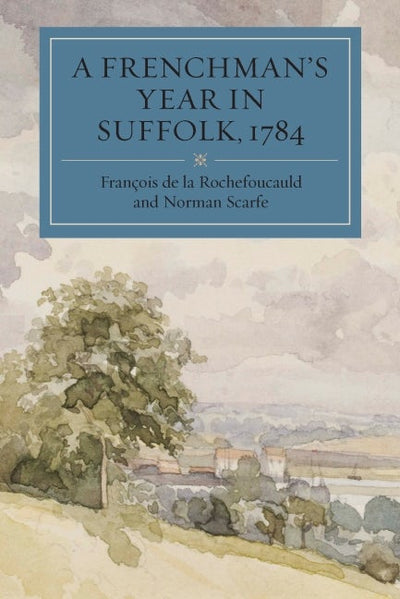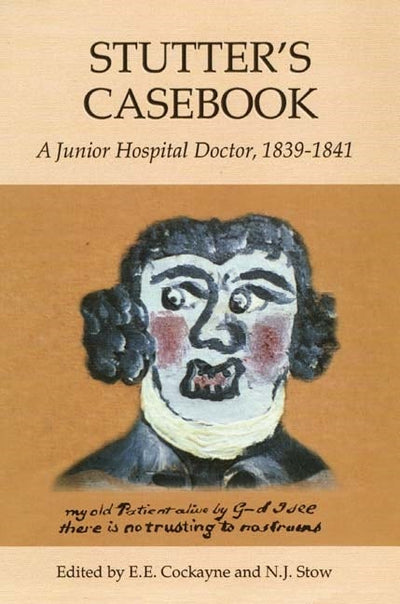Filter
-
Antiques & Collectibles
-
Architecture
-
Bibles
-
Biography & Autobiography
-
Body, Mind & Spirit
-
Comics & Graphic Novels
-
Crafts & Hobbies
-
Design
-
All collections
-
Foreign Language Study
-
Games & Activities
-
Gardening
-
House & Home
-
Humor
-
Language Arts & Disciplines
-
Literary Collections
-
Mathematics
-
Miscellaneous
-
Nature
-
Pets
-
Philosophy
-
Photography
-
Poetry
-
Reference
-
Self-Help
-
Study Aids
-
Transportation
-
True Crime
-
Antiques & Collectibles
-
Architecture
-
Bibles
-
Biography & Autobiography
-
Body, Mind & Spirit
-
Comics & Graphic Novels
-
Crafts & Hobbies
-
Design
-
All collections
-
Foreign Language Study
-
Games & Activities
-
Gardening
-
House & Home
-
Humor
-
Language Arts & Disciplines
-
Literary Collections
-
Mathematics
-
Miscellaneous
-
Nature
-
Pets
-
Philosophy
-
Photography
-
Poetry
-
Reference
-
Self-Help
-
Study Aids
-
Transportation
-
True Crime
2 products
François de la Rochefoucauld
A Frenchman's Year in Suffolk
Regular price $29.95 Save $-29.95
When François de la Rochefoucauld and his brother Alexandre visited Suffolk in 1784, the events which were to lead to the French Revolution in 1789 were already in train. François' father, the duc de Liancourt, Grand Master of theWardrobe at Louis XVI's court, was well placed to appreciate the dangers of the situation in France, and it must have been with anxious hopefulness that he sent his sons (François was then 18) to England for a year to appreciatethe ordering of these things in a country which had experienced a revolution over a century earlier. Such reflections are never far below the surface of this otherwise cheerful journal of a year abroad, which gives a vivid pictureof English provincial life; François' observations range over such diverse subjects as English customs and manners and methods of agriculture and stockbreeding, and include a lively account of a general election.
Norman Scarfe, the well-known historian of Suffolk and beyond, provides a spirited translation of François' journal; it is complemented by numerous illustrations.
Norman Scarfe, the well-known historian of Suffolk and beyond, provides a spirited translation of François' journal; it is complemented by numerous illustrations.

E.E. Cockayne
Stutter's Casebook
Regular price $29.95 Save $-29.95
First paperback edition of this acclaimed transcription of a Victorian doctor's casebook.
For most of his career W.G. Stutter (1815-77) was a respected general medical practitioner in the village of Wickhambrook, a small Suffolk backwater. As a younger man, however, he spent some time as House Apothecary and House Surgeon to the Suffolk General Hospital in Bury St Edmunds. Though just a record of a junior doctor in a small provincial hospital, this casebook is actually a surprisingly rare document of its kind and as such is a wonderful recordof the medicine and medical profession of the period, in a place far removed from the great teaching hospitals. This is a time before X-rays, antibiotics, scanners and blood tests - in fact even the stethoscope was a relatively recent development.
Stutter's casebook throws considerable light on the state of medicine in the early Victorian age and shows that while many of the treatments meted out by the medical profession seem illogical or sometimeseven dangerous to modern eyes, they must have made perfect sense to the average doctor of the time.
For most of his career W.G. Stutter (1815-77) was a respected general medical practitioner in the village of Wickhambrook, a small Suffolk backwater. As a younger man, however, he spent some time as House Apothecary and House Surgeon to the Suffolk General Hospital in Bury St Edmunds. Though just a record of a junior doctor in a small provincial hospital, this casebook is actually a surprisingly rare document of its kind and as such is a wonderful recordof the medicine and medical profession of the period, in a place far removed from the great teaching hospitals. This is a time before X-rays, antibiotics, scanners and blood tests - in fact even the stethoscope was a relatively recent development.
Stutter's casebook throws considerable light on the state of medicine in the early Victorian age and shows that while many of the treatments meted out by the medical profession seem illogical or sometimeseven dangerous to modern eyes, they must have made perfect sense to the average doctor of the time.




